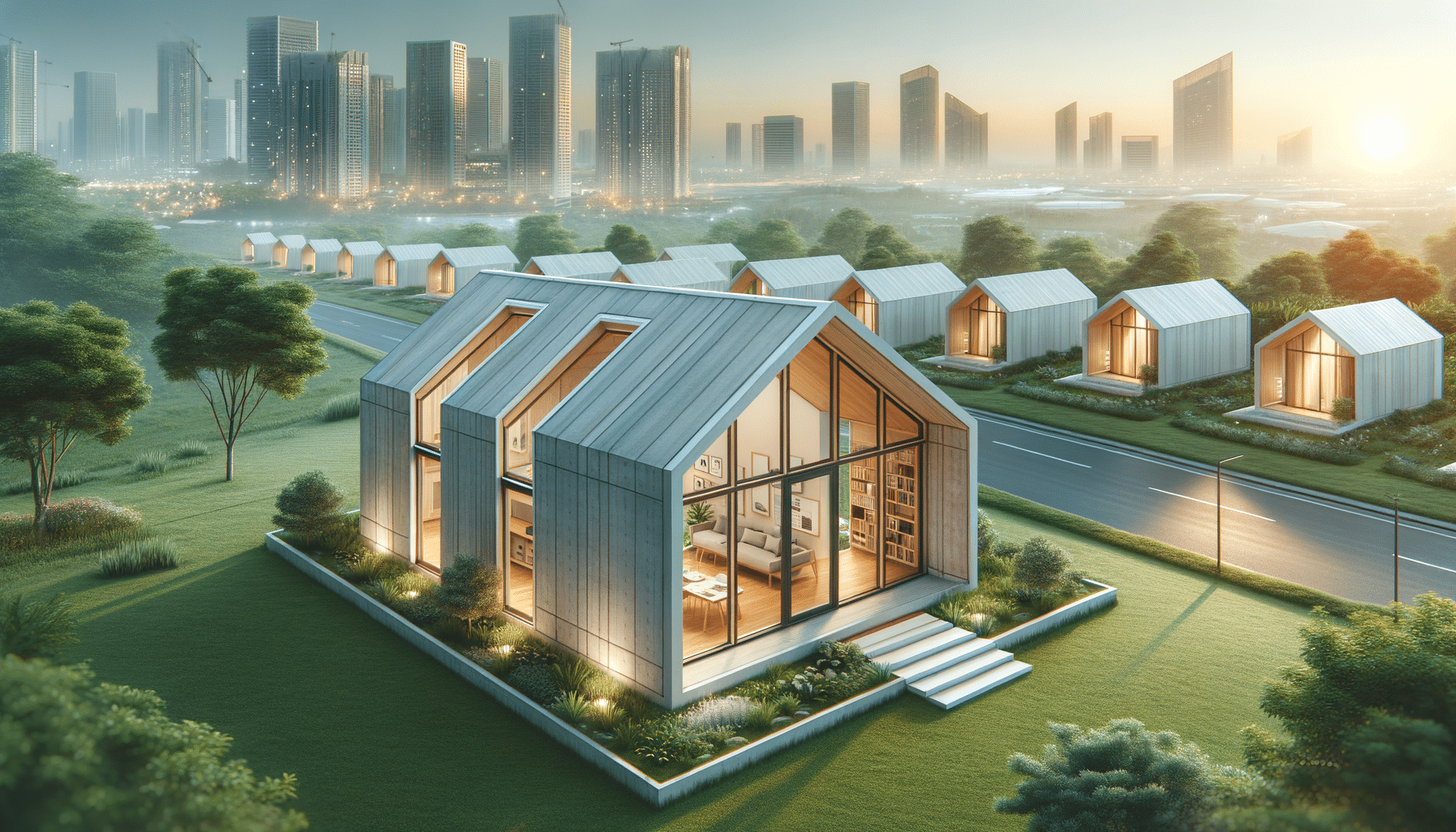
Next-Gen Housing: Why Prefab Is Here to Stay
Introduction: The Evolution of Prefab Homes
In the ever-evolving landscape of modern living, prefab homes are emerging as a compelling option for those seeking innovative and efficient housing solutions. These homes, constructed off-site and assembled on location, are redefining how we think about homebuilding. As the demand for sustainable and cost-effective housing grows, prefab homes offer a promising solution that aligns with contemporary needs and values.
Prefab Homes: The Future of Modern Living Starts Here
Prefabricated homes, or prefab homes, are revolutionizing the housing market by offering a blend of affordability, speed, and sustainability. Unlike traditional homes, prefab homes are built in a factory setting, which allows for greater quality control and reduced waste. This method of construction not only saves time but also minimizes the environmental footprint, making it an attractive option for eco-conscious consumers.
The appeal of prefab homes lies in their versatility and customization. Buyers can choose from a variety of designs and layouts, tailoring their home to fit their personal tastes and lifestyle needs. This flexibility is a significant draw for those who desire a unique living space without the lengthy timelines and high costs associated with custom-built homes.
Furthermore, prefab homes are built to be energy-efficient, often incorporating cutting-edge technology and materials that reduce energy consumption. This focus on efficiency not only benefits the environment but also results in lower utility bills for homeowners, making prefab homes a financially savvy choice.
Built Fast, Built Smart: Why Prefab Homes Make Sense Today
In today’s fast-paced world, the need for quick and efficient housing solutions is more pressing than ever. Prefab homes meet this demand by significantly reducing construction time. Traditional homebuilding can take several months, if not years, to complete, whereas prefab homes can be assembled in a matter of weeks. This rapid construction process is particularly advantageous in areas facing housing shortages or in regions prone to natural disasters where quick rebuilding is essential.
Another advantage of prefab homes is their resilience. Built to withstand transportation and assembly, these homes are often more durable than their traditionally constructed counterparts. This durability translates into long-term savings on maintenance and repairs, further enhancing their appeal to homeowners.
Additionally, prefab homes offer a level of predictability that is uncommon in traditional construction. With fixed costs and timelines, homeowners can plan their budgets and schedules with confidence, avoiding the common pitfalls of unexpected expenses and delays.
Eco-Friendly & Efficient: The Rise of Prefabricated Homes
As environmental concerns continue to shape consumer choices, the rise of prefabricated homes is a testament to the growing demand for sustainable living solutions. Prefab homes are designed with sustainability in mind, often featuring energy-efficient appliances, solar panels, and eco-friendly building materials. These features not only reduce the home’s carbon footprint but also promote a healthier living environment.
The construction process of prefab homes is inherently more sustainable than traditional methods. By building homes in a controlled factory setting, waste is minimized, and resources are used more efficiently. This approach aligns with the principles of sustainable development, making prefab homes an attractive option for environmentally conscious buyers.
Moreover, the energy efficiency of prefab homes can lead to significant savings over time. With reduced energy consumption, homeowners can enjoy lower utility bills, making prefab homes an economically sound choice in addition to their environmental benefits.
Conclusion: Embracing the Future of Housing
As we look towards the future of housing, prefab homes stand out as a viable and attractive solution. Their combination of speed, efficiency, and sustainability addresses many of the challenges faced by traditional homebuilding. Whether driven by environmental concerns, financial considerations, or the need for rapid construction, the appeal of prefab homes is undeniable.
For those seeking a modern living solution that aligns with contemporary values, prefab homes offer a path forward. They represent a shift towards smarter, more efficient housing that meets the demands of today’s world while paving the way for a more sustainable future.


